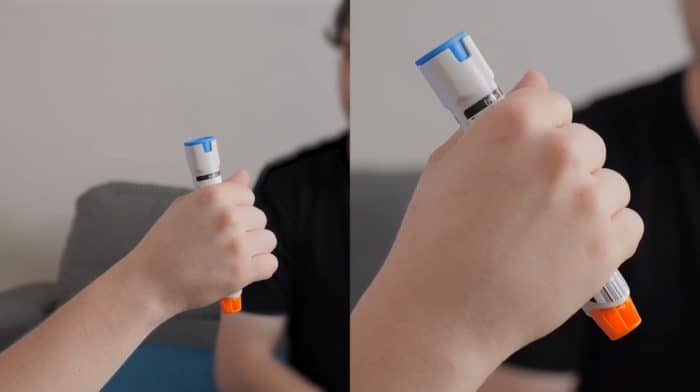How To Deal With Severe Bleeding
When bleeding is severe, it can cause trauma for you and the person you’re caring for. Knowing how to control severe bleeding and prevent shock in an emergency situation can save their life.
In this video, we’ll teach you how to deal with severe bleeding, so you’ll be more prepared in case of an emergency.
When bleeding is severe, it can cause trauma for you and the person you’re caring for. Knowing how to control severe bleeding and prevent shock in an emergency situation can save their life.
In this video, we’ll teach you how to deal with severe bleeding, so you’ll be more prepared in case of an emergency.
If the person you’re caring for is bleeding and you can’t get it to stop or slow down even if you put pressure on it, or blood is spraying or pumping out of the wound, then their bleeding is severe.
If you think they’re bleeding severely, call 9-11 immediately.
Start by putting on a pair of disposable gloves if you have some available
If the person you’re caring for is not laying down, help them to lay down in a safe place and put their feet and legs on pillows or anything you have handy to elevate their legs and feet.
Try and see the area they’re bleeding from, you might need to take off their clothing or cut the clothes off with scissors to see where they’re bleeding from.
Using a towel or any fabric you have available and close by putting firm pressure on the area that’s bleeding
If there is an object in the area that’s bleeding, do not touch the object. Leave it in place and apply pressure around the object.
If the area that’s bleeding is on an arm or a leg, and direct pressure isn’t keeping the bleeding under control, you can use a belt or strip of fabric to tie a tight knot above the wound to cut off blood circulation to the area.
If they begin to feel nauseated or start to vomit, turn them onto their side to make sure they don’t choke.
Keep talking to the person you’re caring for, make sure they stay awake and keep them calm. Reassure them that help is on the way, and cover them with a blanket if they’re complaining they’re cold
Dealing with this kind of situation as a caregiver is very stressful. Make sure to take some time for yourself after the person you’re caring for is safe and well.
For more information about the signs of shock, see our care guide.
To see more videos supporting caregivers, visit our website






